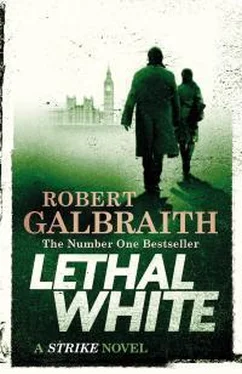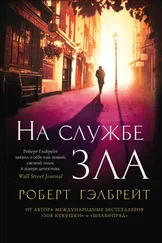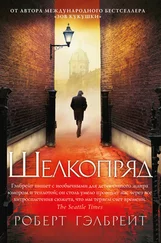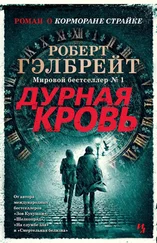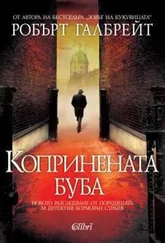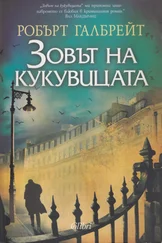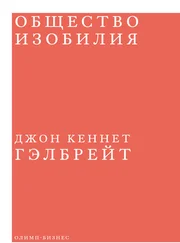49
Rosmers of Rosmersholm – clergymen, soldiers, men who have filled high places in the state – men of scrupulous honour, every one of them . . .
Henrik Ibsen, Rosmersholm
Lorelei didn’t give up. She wanted to see Strike face to face, wanted to know why she had given nearly a year of her life, as she saw it, to an emotional vampire.
‘You owe me a meeting,’ she said, when he finally picked up the phone at lunchtime next day. ‘I want to see you. You owe me that.’
‘And what will that achieve?’ he asked her. ‘I read your email, you’ve made your feelings clear. I told you from the start what I wanted and what I didn’t want—’
‘Don’t give me that “I never pretended I wanted anything serious” line. Who did you call when you couldn’t walk? You were happy enough for me to act like your wife when you were—’
‘So let’s both agree I’m a bastard,’ he said, sitting in his combined kitchen-sitting room with his amputated leg stretched out on a chair in front of him. He was wearing only boxer shorts, but would soon need to get his prosthesis on and dress smartly enough to blend in at Henry Drummond’s art gallery. ‘Let’s wish each other well and—’
‘No,’ she said, ‘you don’t get out of it that easily. I was happy, I was doing fine—’
‘I never wanted to make you miserable. I like you—’
‘You like me,’ she repeated shrilly. ‘A year together and you like me—’
‘What do you want?’ he said, losing his temper at last. ‘Me to limp up the fucking aisle, not feeling what I should feel, not wanting it, wishing I was out of it? You’re making me say what I don’t want to say. I didn’t want to hurt anyone—’
‘But you did! You did hurt me! And now you want to walk away as though nothing happened!’
‘Whereas you want a public scene in a restaurant?’
‘I want,’ she said, crying now, ‘not to feel as though I could have been anyone. I want a memory of the end that doesn’t make me feel disposable and cheap—’
‘I never saw you that way. I don’t see you like that now,’ he said, eyes closed, wishing he had never crossed the room at Wardle’s party. ‘Truth is, you’re too—’
‘Don’t tell me I’m too good for you,’ she said. ‘Leave us both with some dignity.’
She hung up. Strike’s dominant emotion was relief.
No investigation had ever brought Strike so reliably back to the same small patch of London. The taxi disgorged him onto the gently sloping pavement of St James’s Street a few hours later, with the red brick St James’s Palace ahead and Pratt’s on Park Place to his right. After paying off the driver, he headed for Drummond’s Gallery, which lay between a wine dealer’s and a hat shop on the left-hand side of the street. Although he had managed to put his prosthesis on, Strike was walking with the aid of a collapsible walking stick that Robin had bought him during another period when his leg had become almost too painful to bear his weight.
Even if it had marked the end of a relationship he wanted to escape, the call with Lorelei had left its mark. He knew in his heart that he was, in the spirit if not in the letter, guilty of some of the charges she had laid against him. While he had told Lorelei at the outset that he sought neither commitment nor permanence, he had known perfectly well that she had understood him to mean ‘right now’ rather than ‘never’ and he had not corrected that impression, because he wanted a distraction and a defence against the feelings that had dogged him after Robin’s wedding.
However, the ability to section off his emotions, of which Charlotte had always complained, and to which Lorelei had dedicated a lengthy paragraph of the email dissecting his personality, had never failed him yet. Arriving two minutes early for his appointment with Henry Drummond, he transferred his attention with ease to the questions he intended to put to the late Jasper Chiswell’s old friend.
Pausing beside the black marble exterior of the gallery, he saw himself reflected in the window and straightened his tie. He was wearing his best Italian suit. Behind his reflection, tastefully illuminated, a single painting in an ornate golden frame stood on an easel behind the spotless glass. It featured a pair of what, to Strike, looked like unrealistic horses with giraffe-like necks and staring eyes, ridden by eighteenth-century jockeys.
The gallery beyond the heavy door was cool and silent, with a floor of highly polished white marble. Strike walked carefully with his stick among the sporting and wildlife paintings, which were illuminated discreetly around the white walls, all of them in heavy gilded frames, until a well-groomed young blonde in a tight black dress emerged from a side door.
‘Oh, good afternoon,’ she said, without asking his name, and walked away towards the back of the gallery, her stilettos making a metallic click on the tiles. ‘Henry! Mr Strike’s here!’
A concealed door opened, and Drummond emerged: a curious-looking man, whose ascetic features of pinched nose and black brows were enclosed by rolls of fat around chin and neck, as though a puritan had been engulfed by the body of a jolly squire. With his mutton-chop whiskers and dark grey suit and waistcoat he had a timeless, irrefutably upper-class, appearance.
‘How do you do?’ he said, offering a warm, dry hand. ‘Come into the office.’
‘Henry, Mrs Ross just called,’ said the blonde, as Strike walked into the small room beyond the discreet door, which was book-lined, mahogany-shelved and very tidy. ‘She’d like to see the Munnings before we close. I’ve told her it’s reserved, but she’d still like—’
‘Let me know when she arrives,’ said Drummond. ‘And could we have some tea, Lucinda? Or coffee?’ he enquired of Strike.
‘Tea would be great, thank you.’
‘Do sit down,’ said Drummond, and Strike did so, grateful for a large and sturdy leather chair. The antique desk between them was bare but for a tray of engraved writing paper, a fountain pen and an ivory and silver letter opener. ‘So,’ said Henry Drummond heavily, ‘you’re looking into this appalling business for the family?’
‘That’s right. D’you mind if I take notes?’
‘Carry on.’
Strike took out his notebook and pen. Drummond swivelled gently from side to side in his rotating chair.
‘Terrible shock,’ he said softly. ‘Of course, one thought immediately of foreign interference. Government minister, eyes of the world on London with the Olympics and so forth . . . ’
‘You didn’t think he could have committed suicide?’ asked Strike.
Drummond sighed heavily.
‘I knew him for forty-five years. His life had not been devoid of vicissitudes. To have come through everything – the divorce from Patricia, Freddie’s death, resignation from the government, Raphael’s ghastly car accident – to end it now , when he was Minister for Culture, when everything seemed back on track . . .
‘Because the Conservative Party was his life’s blood, you know,’ said Drummond. ‘Oh, yes. He’d bleed blue. Hated being out, delighted to get back in again, rise to minister . . . we joked of him becoming PM in our younger days, of course, but that dream was gone. Jasper always said, “Tory faithful likes bastards or buffoons”, and that he was neither one nor the other.’
‘So you’d say he was in generally good spirits around the time he died?’
‘Ah . . . well, no, I couldn’t say that. There were stresses, worries – but suicidal? Definitely not.’
‘When was the last time you saw him?’
‘The last time we met face to face was here, at the gallery,’ said Drummond. ‘I can tell you exactly what date it was: Friday the twenty-second of June.’
Читать дальше
